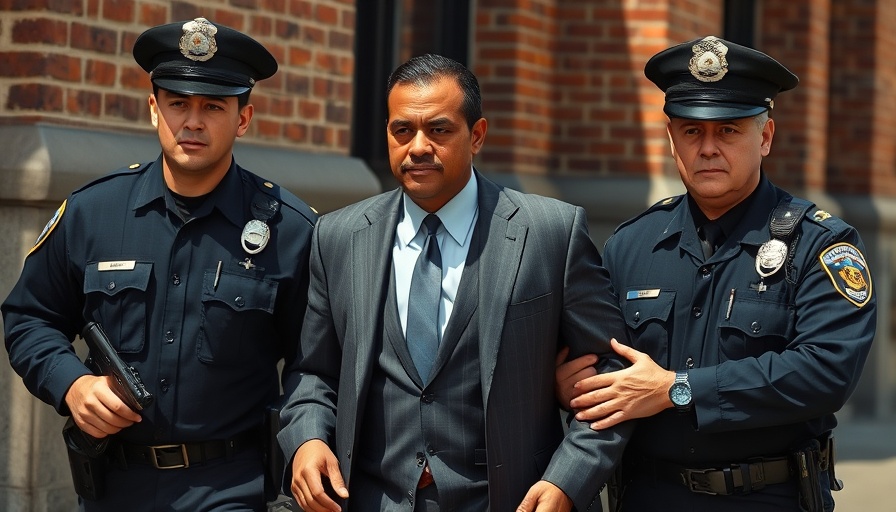
Columbia University’s Activism Faces Increasing Scrutiny
The arrest of Mohsen Mahdawi, a Columbia University associate of Mahmoud Khalil, marks a troubling moment for student activism at universities across the nation. Mahdawi, known for his vocal criticism of Israel's military operations in Gaza, was taken into custody by the Department of Homeland Security (DHS) after attending a naturalization interview in Vermont. His arrest has raised significant alarms among civil rights advocates and educators, particularly regarding freedom of speech.
A Vital Contextual Background
Born in a refugee camp in the West Bank, Mahdawi has been a U.S. permanent resident for a decade and is expected to graduate from Columbia University next month. His activism has not only placed him at the forefront of university discussions on Palestinian issues but has also made him a target in the increasingly polarizing political climate in the United States. This incident draws attention to the broader implications for students expressing dissenting views related to international conflicts.
Legal Implications: Beyond Amos’ Case
Mahdawi's attorneys have characterized his arrest as unlawful, alleging a violation of the First Amendment. They argue that this incident is indicative of a more considerable trend—one where individuals are punished for their speech related to contentious political issues. The temporary restraining order issued by U.S. District Judge William Sessions halting any relocation of Mahdawi highlights the ongoing judicial consideration of such cases.
Emotional Impact and Human Stories
For activists like Mahdawi, the stakes have never been higher. Not only does he face potential deportation to a region filled with personal trauma—having survived through harrowing experiences as a child—but he also embodies the fears many have regarding the repercussions of political expression in the U.S. A public figure since appearing on '60 Minutes' in late 2023, Mahdawi’s journey from witnessing violence in his homeland to becoming a student leader encapsulates the complex dialogues surrounding identity, activism, and safety in America today.
The implications of Mahdawi's case extend beyond his individual rights; they speak to the climate of fear that can permeate educational spaces where political discourse leads to legal scrutiny. The landscape of student activism is at a critical juncture, presenting opportunities for both renewed struggles for rights and significant challenges in the face of an increasingly watchful administration.
 Add Row
Add Row  Add Element
Add Element 



Write A Comment